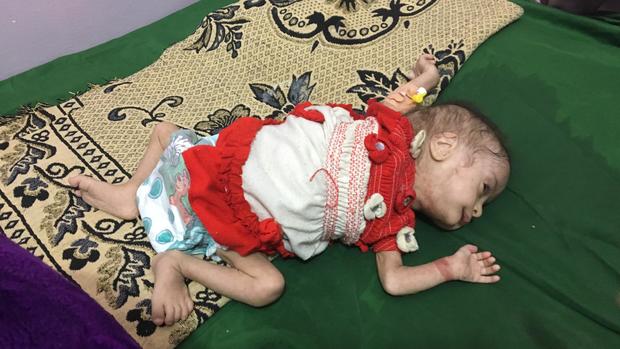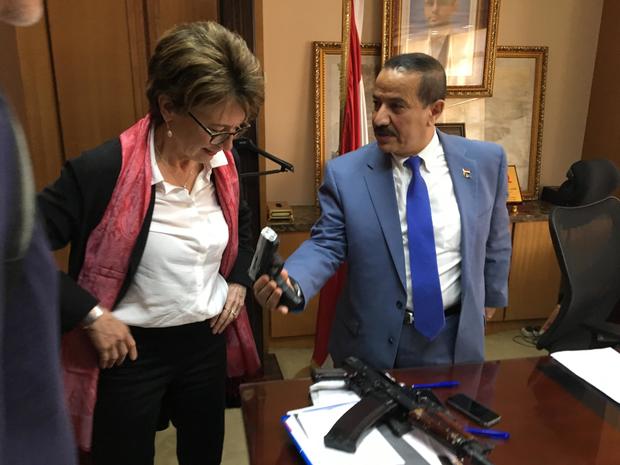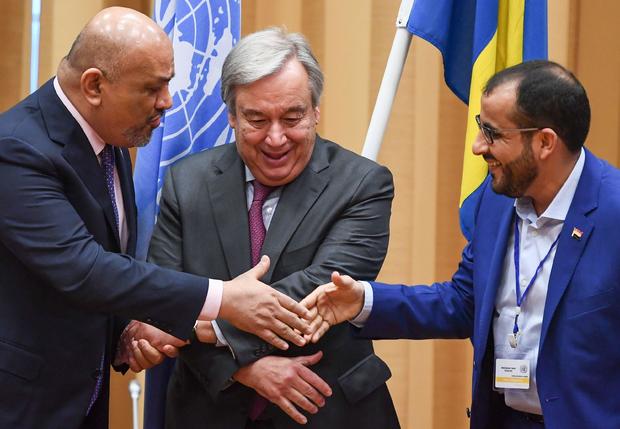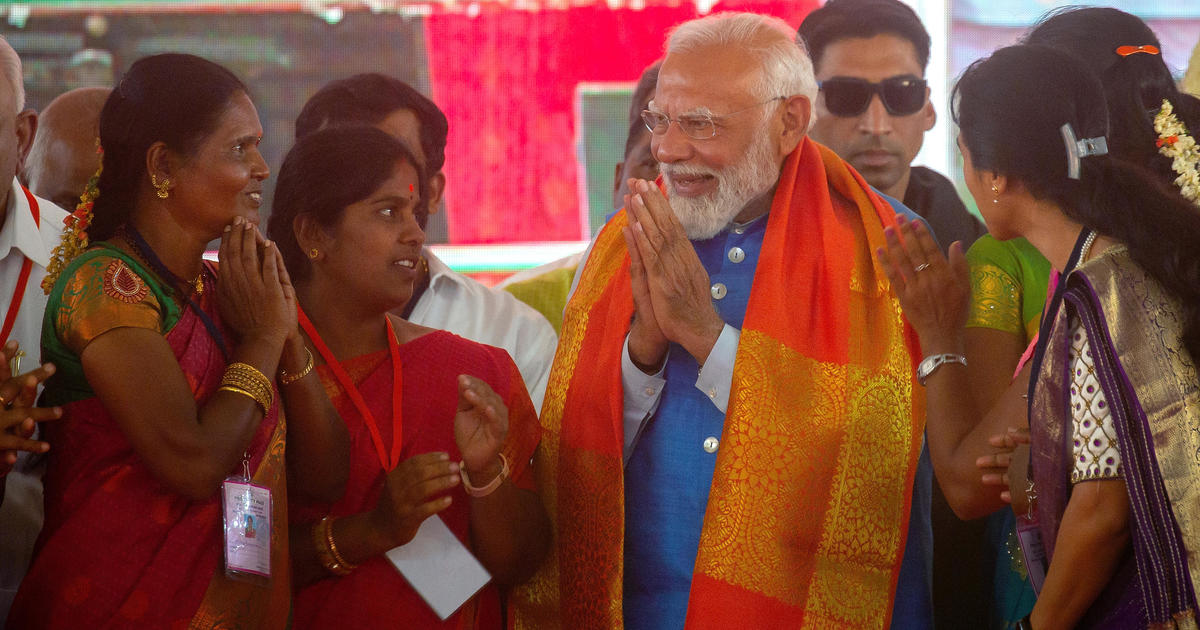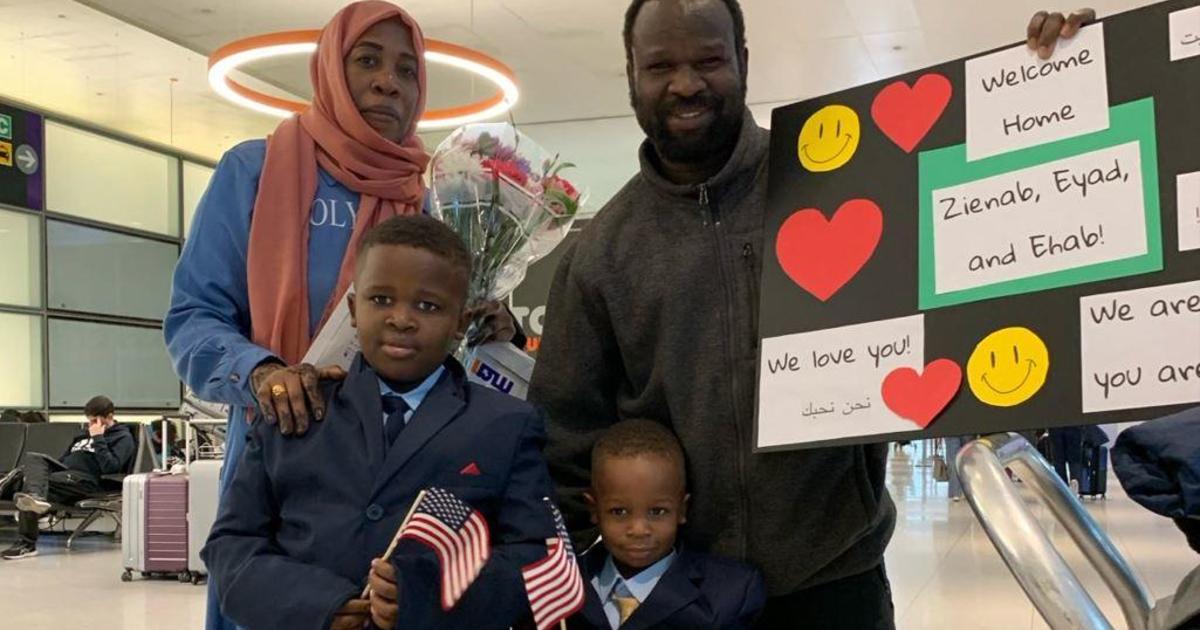Yemen's Houthi rebels pin hopes for peace on the U.S. government
Sanaa, Yemen -- The foreign minister of the Houthi rebel government in northern Yemen tells CBS News he's confident the ceasefire meant to take effect on Tuesday will hold, because the alternative, a merciless continuation of the country's civil war, is too awful to bear.
"We have come to the last chapter of this war, and the people are fed up. That's it. We have to come to peace, by hook or crook," he told CBS News senior foreign correspondent Elizabeth Palmer at his office in Sanaa, the country's longtime capital which the Houthi rebels have held for years amid the war with Saudi-backed, officially recognized government.
Peace can't come soon enough for the millions of Yemenis who, already poor, have had to run from the ongoing airstrikes and violence and now find themselves completely destitute.
Palmer and her team have met just a small number of the Yemeni parents who are trapped by the war, forced to watch their children waste away from hunger.
The numbers from the United Nations are shocking; 10 million Yemenis facing hunger this winter. A quarter of a million facing starvation.
Palmer asked Sharaf what he and his administration are doing to alleviate the suffering.
Why aid isn't getting through -- and a promise of change
"As a Yemeni government, we are doing our best in trying to hold the state as it is. As institutions. But we cannot do anything. We have no cash, no oil to export, we have nothing to lift the burden."
Palmer in interrupts him to point out that global aid agencies do want to help, but many say the Houthi regime is getting in the way, putting up bureaucratic hurdles and blocking aid shipments from getting into ports under the rebels' control.
"Number one, there are some elements who are not really obeying instructions," Sharaf says. "We are trying to correct this."
The foreign minister is talking about certain rogue armed groups which have been blocking aid distribution. But aid groups struggling to address what the U.N. has called the single biggest humanitarian disaster on the planet blame Houthi politicians for all kinds of interference, including not issuing visas to their staff.
"In one month, if you come back to this country after… when peace starts, visa restrictions will be lifted," Sharaf tells Palmer. Asked if aid will be moving "efficiently" at that point, he promises that it will at least "be moving better than now."
Houthis seek help after insults to America
Saudi Arabia's airstrikes have slaughtered civilians and shocked the world. Now that the U.S. is reducing its military support for that air campaign, however, Sharaf hopes the Americans will put more pressure on Saudi Arabia and its Arab allies to support peace in Yemen.
"The U.S. as a state… has a lot of influence in our part of the world," Sharaf tells Palmer. "They control the weapons. They control a lot of politics in this area… So again, the U.S. can, number one, ask all parties to stop it."
Asked if he would like to see the U.S. use its soft power or its "muscle" to make the ceasefire really take hold, Sharaf says "muscle," but acknowledges that "sometimes the carrot and sometimes the stick policy works."
While that sounds like a sensible enough request of the world's superpower, Palmer asks Sharaf if the Houthi regime's use of their Iranian benefactors' "Death to America" slogan might complicate matters.
"We don't want death to America. Why should we?" Sharaf insists.
They do say it, though. The slogan is plastered on walls all over Houthi territory in northern Yemen.
"But we are welcoming any role of the United States to stop this crazy war by pressuring the Saudis, the Emiratis and all the others on our side who are ready to stop this war," Sharaf says, explaining that the wish of death to America, "has been directed to the administration and the military who is helping our enemies."
Palmer points out to Sharaf that the slogan is crude, offensive, "and it's not going to help you as you ask for American help."
Again the foreign minister blames anonymous, frustrated entities in Houthi-controlled Yemen; just "some people" who feel the need to vent "their frustration against the (U.S.) military, who are helping the Saudis."
The photo of a handshake between Houthi and Yemeni government negotiators in Sweden last week, when the looming ceasefire was agreed, went viral.
But a comprehensive peace deal is still a long way off.
If there is any real hope, Sharaf says it's because all sides in the war are now bruised and exhausted.
"We have rockets, we have weapons that can go on for years," he tells Palmer. "But the people get tired of this crazy war. Useless war."
